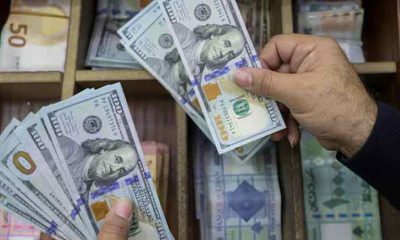Business
Oil little changed as market weighs mixed drivers

Oil was broadly stable for a second day on Wednesday as concerns about escalating hostilities in the Ukraine war potentially disrupting oil supply from Russia and signs of growing Chinese crude imports offset data showing US crude stocks rising.
Brent crude futures for January were up 11 cents to $73.42 a barrel at 0730 GMT. US West Texas Intermediate crude futures for December, due to expire on Wednesday, were flat at $69.39 per barrel, while the more active WTI contract for January was up 18 cents at $69.42 per barrel.
The escalating war between major oil producer Russia and Ukraine has kept a floor under the market this week.
“We may expect (Brent) oil prices to stay supported above the $70 level for now, as market participants continue to monitor the geopolitical developments,” said Yeap Jun Rong, market strategist at IG.
On Tuesday, Ukraine used US ATACMS missiles to strike Russian territory for the first time, Moscow said. Russian President Vladimir Putin lowered the bar for a possible nuclear attack.
“This marks a renewed build up in tensions in the Russia-Ukraine war and brings back into focus the risk of supply disruptions in the oil market,” ANZ analysts said in a note to clients.
On the demand side, US crude oil stocks rose by 4.75 million barrels in the week ended Nov. 15, market sources said on Tuesday, citing American Petroleum Institute figures.
That was a bigger build than the 100,000-barrel increase analysts polled by Reuters were expecting.
Gasoline inventories, however, fell by 2.48 million barrels, compared with analysts’ expectations for a 900,000-barrel increase.
Distillate stocks also fell, shedding 688,000 barrels last week, the sources said.
Official government data is due later on Wednesday.
In a boost to oil price sentiment, there were signs that China, the world’s largest crude importer, may have stepped up oil purchases this month after a period of weak imports.
Data from vessel tracker Kpler showed China’s crude imports are on track to end November at or close to record highs, an analyst told Reuters.
Weak imports by China so far this year have pulled down oil prices, with Brent sinking 20% from its April peak of more than $92 a barrel.
Business
Dollar treads water as Trump tariff clarity, central banks awaited

The dollar steadied against major peers on Thursday, continuing its near paralysis of the past two days before more concrete announcements on tariffs from U.S. President Donald Trump.
A spate of central bank policy decisions are also due over the next week, with the Bank of Japan widely expected to raise interest rates at the end of a two-day meeting on Friday.
Rate decisions from the U.S. Federal Reserve and European Central Bank are scheduled for Wednesday and Thursday of next week, respectively.
The dollar index – which measures the currency versus six top rivals, including the euro and yen – was flat at 108.25, following two days of gains of around 0.1%.
On Monday, it tumbled 1.2%, its steepest one-day slide since November 2023, as Trump’s first day in office brought a barrage of executive orders, but none on tariffs.
So far this week, Trump has mooted levies of around 25% on Canada and Mexico and 10% on China from Feb. 1. He also promised duties on European imports, without giving details.
“President Trump has so far taken a less hostile-than-expected approach to China,” amid overall “softer-than-expected policies and tone on tariffs”, said Carol Kong, a currency strategist at Commonwealth Bank of Australia.
At the same time, “we are cautious (that) risk sentiment remains fragile and can quickly turn sour if President Trump strikes a more aggressive tone.”
The Chinese yuan was little changed at 7.2812 per dollar in offshore trading .
Wall Street’s main indexes rose Wednesday, with the S&P 500 hitting an intraday record high thanks to strong Netflix earnings and a rally in tech shares.
Japan’s yen edged up about 0.1% to 156.40 with markets pricing 95% odds of a quarter-point hike on Friday.
The euro was flat at $1.0411. The ECB is widely expected to cut rates by a quarter point next week.
The Canadian dollar held steady at C$1.4386 against the greenback. The Bank of Canada is seen as likely to reduce rates by a quarter point next Wednesday.
The Mexican peso was little changed at 20.47 versus the U.S. currency.
Business
Oil prices extend losses amid uncertainty over tariff impact

Oil prices dipped in early trade on Thursday, extending losses amid uncertainty over how proposed tariffs by U.S. President Donald Trump on several countries would impact global economic growth and energy demand.
Brent crude futures fell 23 cents, or 0.3%, to $78.79 a barrel at 0135 GMT, while U.S. West Texas Intermediate crude (WTI) eased 18 cents, or 0.2%, to $75.26.
In its previous session, Brent futures settled at $79.00 in a fifth straight day of losses. WTI futures settled at $75.44 in a fourth consecutive day of declines.
Trump has said he would add new tariffs to his sanctions threat against Russia if the country does not make a deal to end its war in Ukraine. He added these could be applied to “other participating countries” as well.
He also vowed to hit the European Union with tariffs, impose 25% tariffs against Canada and Mexico, and said his administration was discussing a 10% punitive duty on China because fentanyl is being sent to the U.S. from there.
Meanwhile, estimates from an extended Reuters poll showed that on average U.S. crude oil stockpiles were expected to have fallen by 1.6 million barrels in the week to Jan. 17.
Gasoline stockpiles were estimated to have risen by 2.3 million barrels last week, and distillate inventories were likely to have gained 300,000 barrels.
The poll was conducted ahead of the American Petroleum Institute industry group’s report and another from the Energy Information Administration at 12:00 p.m. ET (1700 GMT) on Thursday.
European wind shares fell on Tuesday (January 21).
The reports were delayed by a day due to the Martin Luther King Jr. Day federal holiday on Monday.
Business
Pakistan, Saudi Arabia reaffirm commitment to boost economic ties

Pakistan and Saudi Arabia have reaffirmed their commitment to further strengthening the bilateral economic ties for shared prosperity.
The commitment was expressed when Finance Minister Muhammad Aurangzeb met with his Saudi counterpart Mohammad bin Abdullah Al-Jadaan on the sidelines of World Economic Forum Annual Meeting in Davos.
Muhammad Aurangzeb highlighted the key reform measures undertaken by the Government to promote economic stability and sustainable growth.
He briefed him on structural reforms, fiscal discipline and regulatory improvements that have contributed to an improved investment climate in Pakistan.
Earlier, Aurangzeb met Anna Bjerde, Managing Director of Operations at the World Bank.
They discussed cooperation between Pakistan and the World Bank, with a particular focus on Pakistan’s macroeconomic stability.
The finance minister emphasized the government’s strong partnership with the Bank and expressed hope that the World Bank would continue playing a key role in the country’s socio-economic development.
-

 Business2 months ago
Business2 months agoAuto industry’s shift toward EVs is expected to go on despite Trump threat to kill tax credits
-

 Entertainment3 months ago
Entertainment3 months agoBeyoncé leads the 2025 Grammy noms, becoming the most nominated artist in the show’s history
-

 pakistan3 months ago
pakistan3 months agoPM Shehbaz terms promotion of foreign investment as top priority
-

 Business3 months ago
Business3 months agoWall Street cruises toward the close of its best week in a year
-

 World2 months ago
World2 months agoSix Israeli troops killed, deadly strikes in Lebanon
-

 Entertainment2 months ago
Entertainment2 months agoMovie Review: ‘Red One’ tries to supersize the Christmas movie
-

 Sports1 month ago
Sports1 month agoSouthampton set to sign Juric as new manager
-

 Business2 months ago
Business2 months agoWall Street gains ground as it notches a winning week and another Dow record

















